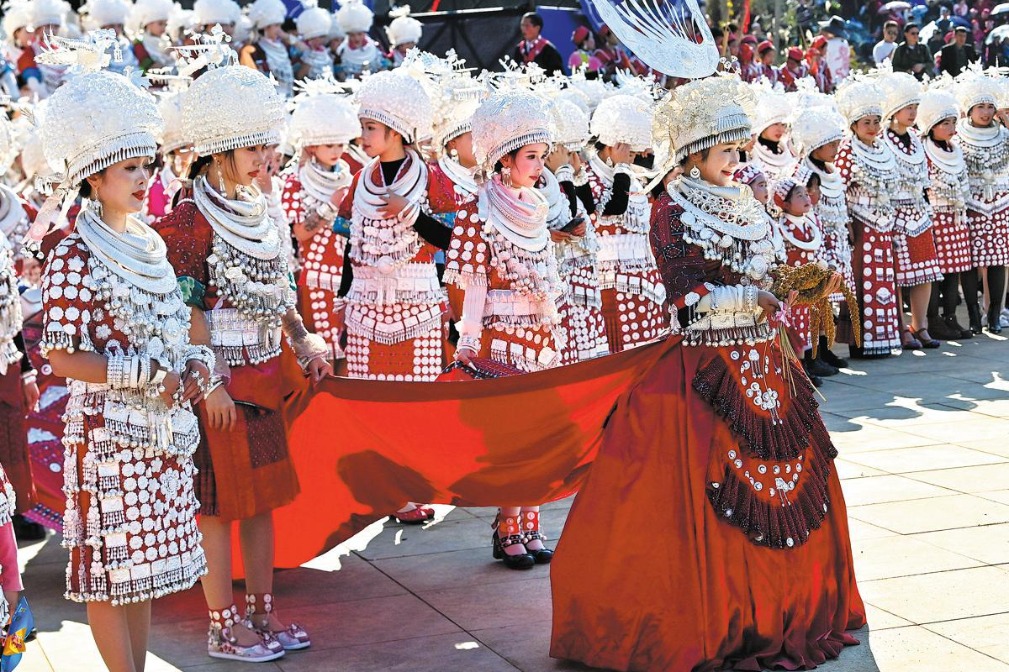Young netizens use 'momo' name to hide identity
By Zou Shuo | China Daily | Updated: 2024-08-06 09:27
Many young Chinese people have adopted "momo" as their alias on social media platforms so they can speak more freely and protect their privacy, while avoiding online confrontation and harassment.
Originally the default user name for new accounts on social media platforms such as Douban and Xiaohongshu, it later became more widely used among online fans who wanted to safely gossip about celebrities without being harassed by competing fans. Netizens also use momo to express views and feelings online without being noticed by others.
They have also adopted the same profile image — a pink dinosaur — to better hide their identities. Netizens often joke that they can find momo everywhere, with the momo group proudly saying that they do not want to be recognized.
He Xin, 18, a high school graduate in Yichang, Hubei province, changed her name on Xiaohongshu to momo about a month ago so that she would not be tracked down by others.
"I have been recognized in the comment section of a post before, a somewhat embarrassing situation, so I changed my name to momo," she said. "I want to speak freely online and not be noticed or remembered."
Her first post on Xiaohongshu was about her scores in the national college entrance exam, where she did not perform well.
To her surprise, many netizens, whose names are also momo, offered her encouragement and friendly suggestions.
"People whose names are momo value privacy," she said. On WeChat moments, where everyone knows who I am, I cannot say whatever I want, so on Xiaohongshu, under momo, I am free to speak my mind."
A postgraduate student in Nanjing, Jiangsu province surnamed Zhou started to use momo on Douban more than three years ago so it would be easier to make comments about his idol, a Chinese pop star in a South Korean boy band.
On Douban, fans of different idols often engage in competitions and fights, so anonymity helps them say more things, Zhou said.
After a government regulation was passed requiring online platforms to show the province users were posting from, they started to call each other momo plus their location, such as "Hunan momo" or "Beijing momo", making it somewhat less anonymous, he said.
Guan Yangyin, 20, an undergraduate student at Wuhan University, said she used to call herself "12345"before changing to momo.
She said she has not engaged in online fights with others, but seeing other momos arguing with each other can be fun. Sometimes, you can see someone changing his or her name to momo in the middle of a fight to make it easier for them to continue arguing, she said.
Qin Lan, an associate professor at Xiangtan University in Hunan, said the prevalence of momo on social media platforms shows that young people want communication in a less obvious and carefree way, but also warned them to be aware of the negative impact of cyberbullying and try to be civil in public discourse.
There is a tendency in public discourse nowadays to increase transparency, but that was being resisted by the momo group, which increased the ambiguity of interpersonal communication, she said.
Qin said true anonymity does not exist online, and people should still comply with social morality, the law and regulations on social media platforms.
"There is nothing wrong with being momo online, but if you only want to vent your anger in anonymity at your will, it is not a wise choice," she said.
























